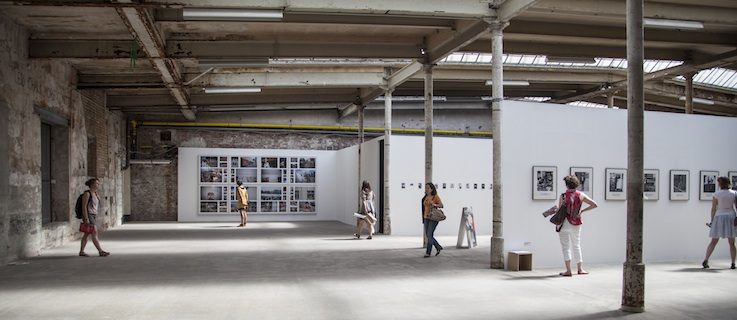Photo are often held in locations spread out over the city, also gladly at places not associated with art that the visitors can then capture and occupy. The festival atmosphere stimulates conversation.
In the run-up to preparations for a festival, artist Wolfgang Tillmans regretted the fact that photo festivals and institutions, such as the Photographer’s Gallery in London, are now completely dedicated to art, instead of, say, photo journalism or nature and animal photography. In his view, photography is much more than this: “Medical photography, technical photography, the entire amateur area.” … “There are incredibly many people whom we do not reach at all with our approach, but who are passionately involved with photography.”
Interest in the amateur and his potential for innovation has tradition. Recall, for example, the Pictorialists of the turn of the twentieth century, who trained themselves in contradistinction to professional studio photography, or the avant-garde of the 1920’s and the Bauhaus. Today as well, the amateur, whom Tillmans wishes to be taken seriously, also sets some of the most interesting impulses, such as smartphone photography and sharing photos on social media. Or the phenomenon of citizen journalism accompanying an important historical moment.
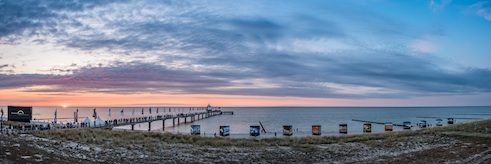 Umweltfotofestival horizonte Zingst | sundown
| Photo: Oliver Nieschulz
This ought to spark our curiosity for the Fürstenfelder Naturfototage, (i.e. Fürstenfeld nature photography), the Internationale Naturfotofestival (i.e. international nature photo festival) in Lünen, and the environmental photo festival horizonte zingst, all of which explicitly address the amateur. The point here, though, is to take photos rather than analyse them. At the trade fair organised in Lünen by the Gesellschaft Deutscher Tierfotografen (society of German animal photographers) and accompanying the festival, amateur photographers and photo industry reps bustle about. Apart from the photo market, one of the most important formats of festivals such as these with an interest in the amateur, are also the photo workshops.
Umweltfotofestival horizonte Zingst | sundown
| Photo: Oliver Nieschulz
This ought to spark our curiosity for the Fürstenfelder Naturfototage, (i.e. Fürstenfeld nature photography), the Internationale Naturfotofestival (i.e. international nature photo festival) in Lünen, and the environmental photo festival horizonte zingst, all of which explicitly address the amateur. The point here, though, is to take photos rather than analyse them. At the trade fair organised in Lünen by the Gesellschaft Deutscher Tierfotografen (society of German animal photographers) and accompanying the festival, amateur photographers and photo industry reps bustle about. Apart from the photo market, one of the most important formats of festivals such as these with an interest in the amateur, are also the photo workshops.
Analysing photos
If a festival attracts attention in the art context, the focus shifts from photographing to an appraisal of pictorial results. Independence from the photo industry seems to be the foremost principle. Thus, for instance, in connection with the Photobook Festival Kassel, the photo book market is the subject of critical discussion. The reason is that the festival’s critical potential is endangered by the market that compromises the added-value of distinction, which in turn is profitably utilised as an advertising factor for the cities, instead of fuelling the market of the photo industry.
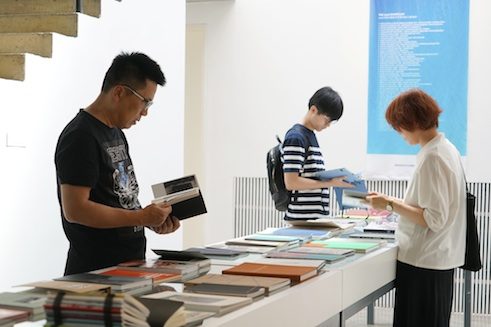 Fotobook Festival Kassel | in Peking
| Photo: Fotobook Festival Kassel
Fotobook Festival Kassel | in Peking
| Photo: Fotobook Festival Kassel
In recent years in the festival sector, movement is away from photo journalism and reportage and towards a multi-disciplinary art photography. This is evident in the repositioning of the oldest and most prominent photo festival, the Rencontres d’Arles, that was founded in 1969. In 2015, newly appointed festival director Sam Stourdzé spoke of how art supplies the freedom to see in different ways. Here, art is trusted and the market eyed with suspicion.
Alternative exhibition venues
Like photo festivals in Germany, the Fotofestival Arles was founded in a climate in which exhibition opportunities for photography were still exceedingly rare. The medium established itself in German museums only in the 1980’s: the photography departments in art museums were started in the late 1970’s, at a time in which an art market was also developing. Photo festivals were therefore initially alternative venues where photography was exhibited that as yet had found no place in museums. Nowadays, in a cultural landscape in which photography has its place as a matter of course in museums’ exhibition spaces, the question of the function of festivals presents itself.
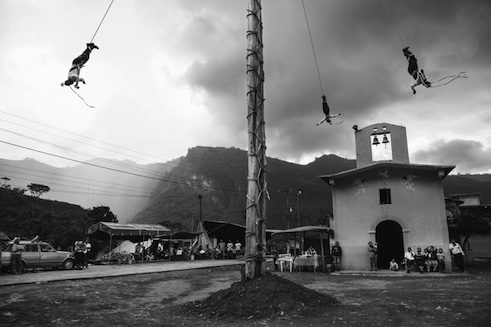 European Month of Photography Berlin | Kike Arnal | Samen from the series Voladores, 2014
| Photo: © Kike Arnal
European Month of Photography Berlin | Kike Arnal | Samen from the series Voladores, 2014
| Photo: © Kike Arnal
The two festivals with the greatest number of venues in Germany are the European Month of Photography Berlin and the Triennale der Photographie Hamburg. Both are held in locations whose institutions and galleries have a tradition of photographic exhibition. They feature wide-ranging thematic areas that make it possible to integrate a great many curators and their work.
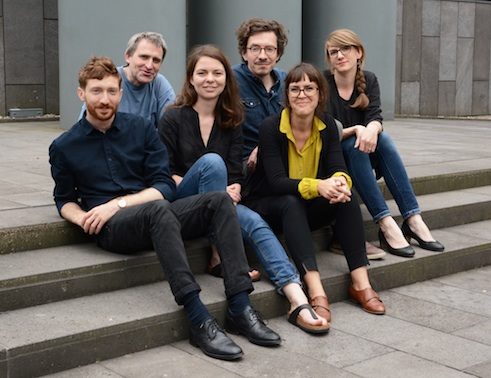 Biennale für aktuelle Fotografie | curators 2017 | (Boaz Levin, Florian Ebner, Christin Müller, Fabian Knierim, Kathrin Schönegg, Kerstin Meincke)
| Photo: Biennale für aktuelle Fotografie
Biennale für aktuelle Fotografie | curators 2017 | (Boaz Levin, Florian Ebner, Christin Müller, Fabian Knierim, Kathrin Schönegg, Kerstin Meincke)
| Photo: Biennale für aktuelle Fotografie
The Biennale für aktuelle Fotografie (biennial for current photography) in Mannheim, Heidelberg and Ludwigshafen is held in a region where only a few exhibition surfaces are available for photography. The event has been organising frequent discourses with a varying list of invited curators, and in doing so presents Germany’s most ambitious festival of recent years. In 2017, with Farewell Photography, the festival addresses the theme of the transformation of analogue photography. The f/stop Photography Festival in Leipzig was launched by local interest groups and maintains close contact with the Academy of Fine Arts.
Special festivals
Also of interest are festivals heavily specialising in subdivisions of photography, such as the 9. Photobook Festival Kassel, which with its mini-editions and inexpensive self-publishing, has evolved since the late 1990s into an exciting, alternative venue for showing photography. Another example of specialisation is the festival Fotodoks, which with its focus on documentary photography presents countries one at a time, in alternating sequence.
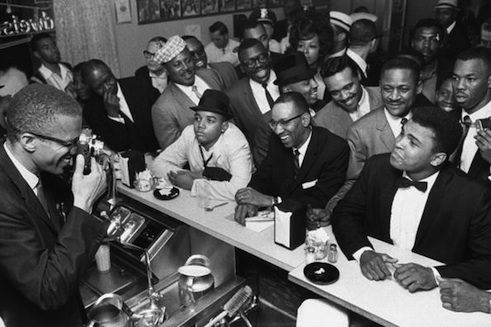 Fotodoks Festival | Cassius Clay posing for Malcolm X
| Photo: © Bob Gomel
Fotodoks Festival | Cassius Clay posing for Malcolm X
| Photo: © Bob Gomel
Alternative exhibition format or city marketing? Festivals are interesting when they make things possible which in that form are not to be seen in institutions, whether it be experimental exhibition formats or seldom-treated themes.
